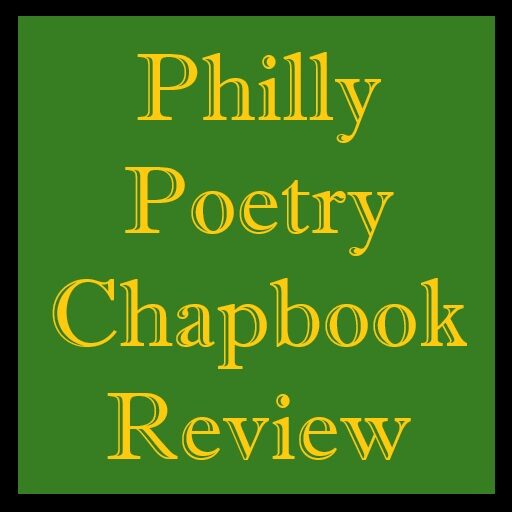Due to difficulties in obtaining information in advance of chapbook releases, chapbook listings for the previous month are published at the end of each month. This post contains information about poetry chapbooks that we know about published during April 2025.
Information, including product descriptions, is provided by the publisher and not a critical judgment. If we cover the book on this site, links will be included.
The Poetry Box
The Pronunciation Part, Flavian Mark Lupinetti
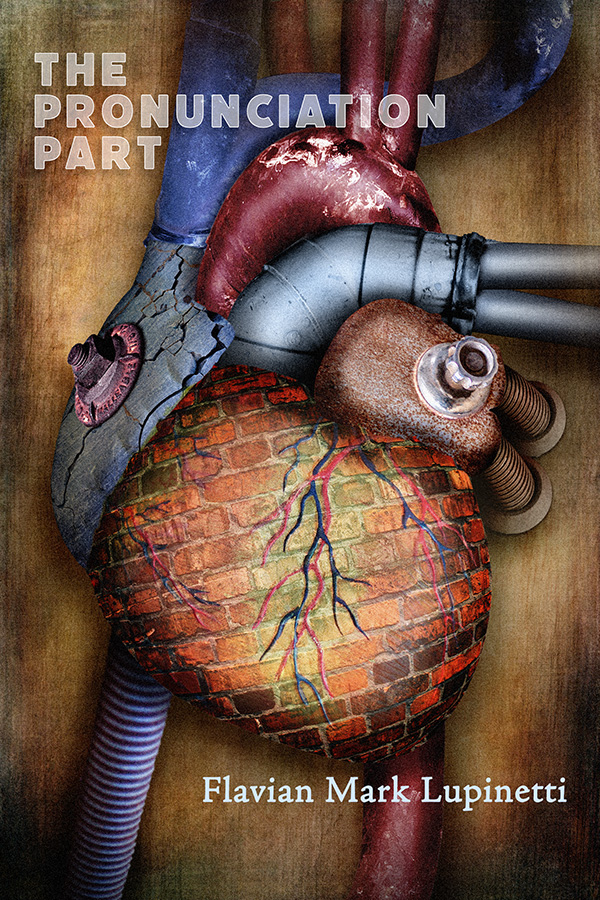
In his prize-winning poetry collection, The Pronunciation Part, based on his 35 years as a cardiothoracic surgeon, Flavian Mark Lupinetti presents the triumphs and tragedies of the practice of medicine. The reader will explore the operating room, the emergency room, the intensive care unit, and the secrets of the human heart—in every sense of the word.
River Glass Books
A Future with Bromeliads, Grace Massey
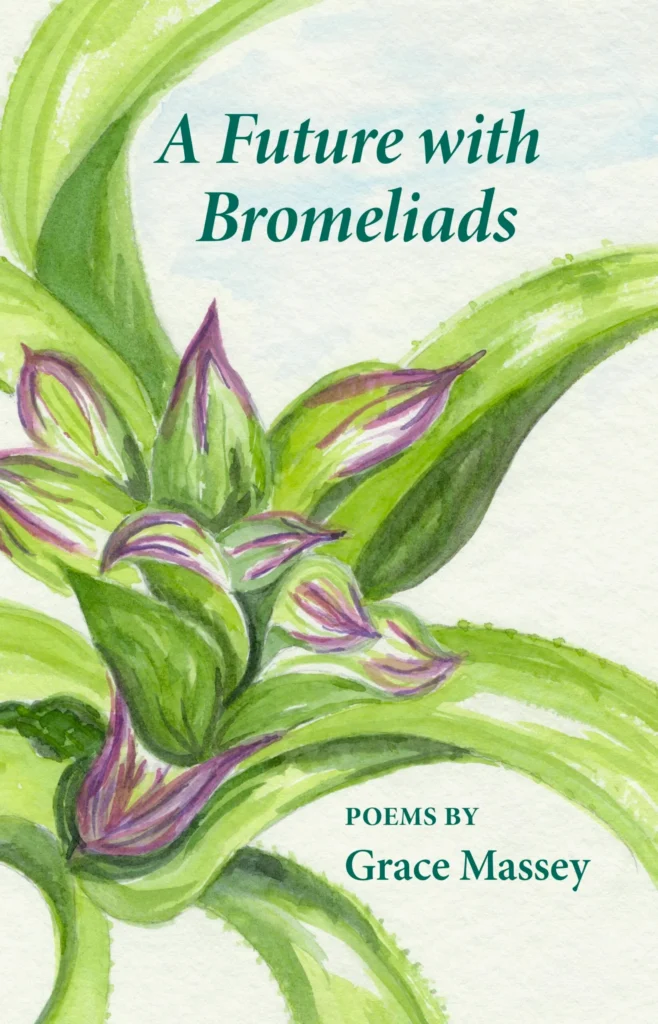
A Future with Bromeliads is a collection of lyric poems that explore, as one reviewer has said, “a shadowed family history of ghosts and grief.” Another reviewer notes, “These poems astonish and startle” with their sounds and images: “mesas of bees,” gardens, music, dance, birds, and beaches, a father sculpting mermaids, a garden of marigolds planted in memory of a child. A third reviewer writes, “An elegant mastery of line and controlled compression make A Future with Bromeliads a collection readers will want to settle into, hold close. And return to.”
Bottlecap Press
collateral damage when the big one hits, Taylor Powers
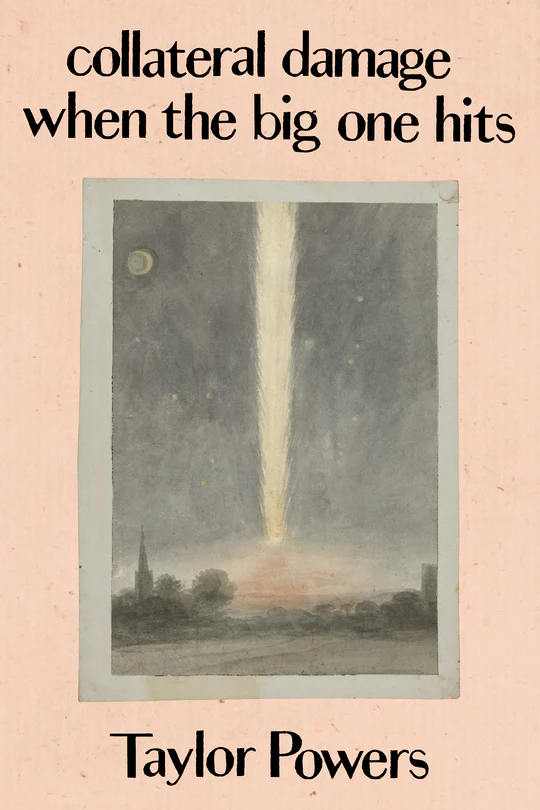
collateral damage when the big one hits is a collection of poetry that addresses the everyday casualties of modern “living.” With a critical eye and flair for the existential, this chapbook contemplates and challenges our current modes of operation under capitalism. It questions everything we’re being fed—media, political propaganda, dreams—as well as how we digest, process, and expel those encounters back into the world.
At once a rallying cry of frustration and container for American pop culture of the 21st century, themes of death, tech, and isolation mirror the consumptive mentality and increasing surreality which so pervade the author’s 30th rotation around the sun.
Crunchwrap Truth, Kevin J.B. O’Connor
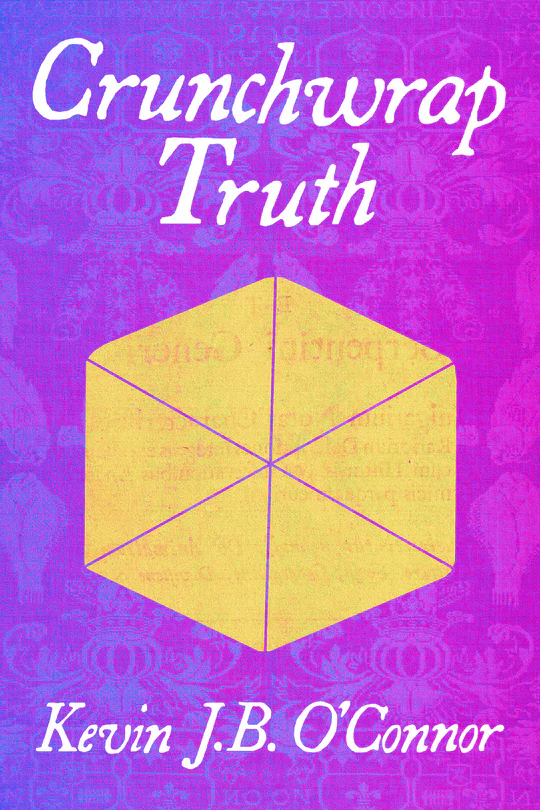
In Crunchwrap Truth, Kevin J.B. O’Connor presents a collection of poems that traverse the terrain of late-capitalist absurdity with intellect, wit, and unexpected pathos. At once satirical and sincere, these poems interrogate contemporary American life through a lens that is both culturally saturated and sharply self-aware. O’Connor’s voice is conversational yet cerebral, weaving together pop-cultural allusions, philosophical inquiry, and the language of everyday survival. Whether referencing Harold Bloom, fast food epiphanies, or spectral memories of love and failure, the poet positions himself at the crux of irony and vulnerability. What emerges is a richly textured poetics that draws influence from the New York School, postmodern lyricism, and political disillusionment.
Crunchwrap Truth is a debut that resists easy categorization, reveling instead in its own contradictions—playful and elegiac, digressive yet grounded, skeptical and spiritually inquisitive. It is a compelling addition to the growing archive of 21st-century poetic resistance.
Control, Cecilia Stelzer
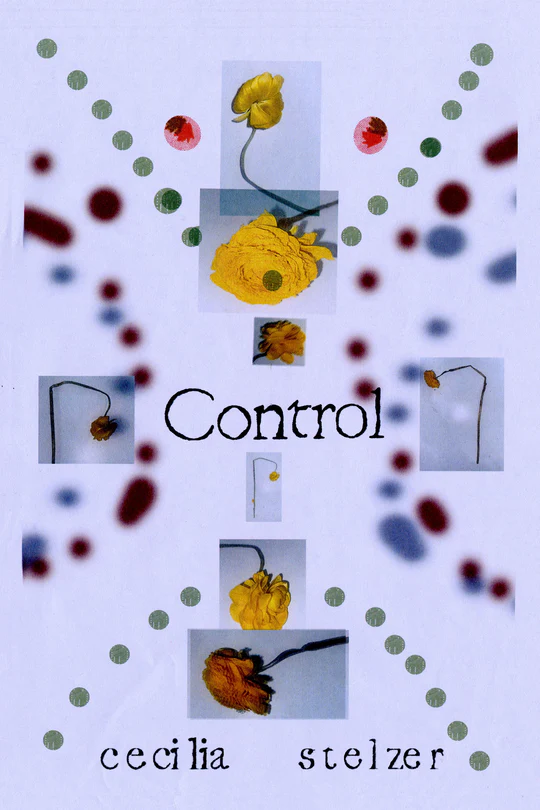
Control is a work of erotic, experimental poetry—ambiently disturbing and linguistically porous. It dissects the structures of sexual and societal power with mantic and corporeal intensity. The language flexes itself towards its undoing, its inverse, and its mirror. It traces out liminal spaces and works through ideas of possession, surveillance, technology, and dominance.
Control’s verse bends language into new anatomies, with a style that is both abstract and obsessive. It layers and cuts through bodily and digital memory, subjecthood and objecthood, self and Other, autonomy and submission. It is a document of contemporary desire and control.
Seeings, Chris Viner
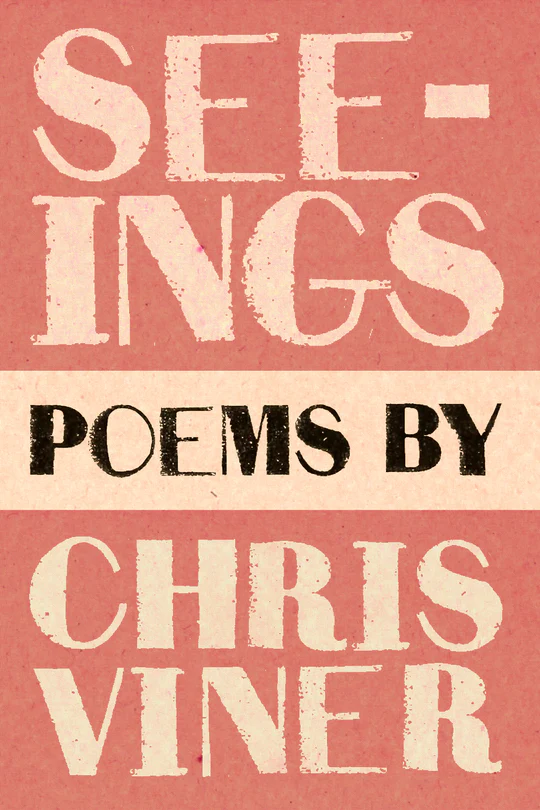
“What impresses me about Chris Viner’s remarkably beautiful poems is their use of insurgently powerful imagery. Imagery or imagination is the core feature of any real poetry, and here we have it in abundance. Forward and on.” —Jeremy Reed, author of The Life & Career of Lou Reed: Waiting for the Man (Omnibus)
Lost Time, Kathryn Burkett
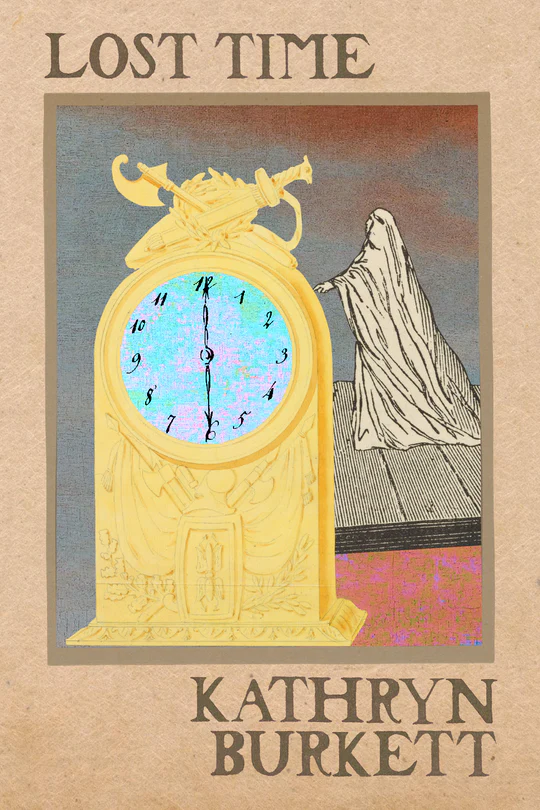
In life and in death, we are at the mercy of the clock’s endless ticking. Life seems to be dominated by attempts to find a sense of belonging while simultaneously searching out and asserting our own unique identity. The perpetual balancing act required by life can leave one exhausted and overwhelmed. Sometimes it feels as though death itself is not a dreaded horror, but rather a welcome release from the ordeal of living.
It is easy for individuals to feel trampled over and left behind by a world that discourages the voicing of uncertainty and pain. Many battles are fought silently, unacknowledged by a world that feeds us storybook endings and perpetuates the lie that hard work is always rewarded and a pot of gold awaits at rainbow’s end. The poems in Lost Time attempt to give voice to the unheard, to the underdog, to all the losers that sit in the seats watching silently as the winners sing songs about not giving up.
Luftmensch, Mike Costaney
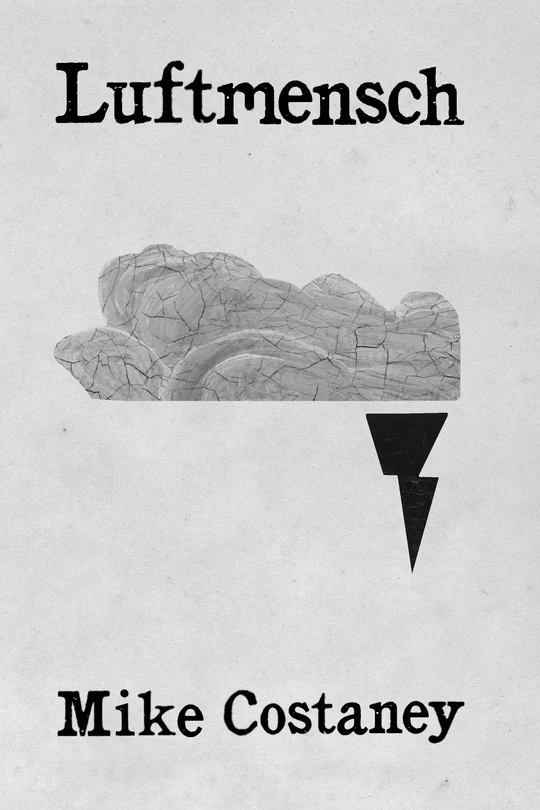
In Luftmensch, Mike Costaney builds a quiet, offbeat cosmos where the surreal quietly interrupts the everyday, and sincerity shows up dressed like a joke. These poems move like dreams you half-remember: a phone becomes a father, guilt is an orb that outlives you, and heaven has just enough rules to be frustrating. With sharp, strange humor and a deep empathy for the awkwardness of being alive, Costaney’s voice drifts easily between the absurd and the tender—never quite settling, always orbiting something honest.
Luftmensch doesn’t demand understanding— it just wants to sit beside you for a moment, share something weird, and maybe make you laugh in that way where you’re not sure if it’s funny or if it just hit too close. There’s a soft magic in its refusal to explain itself. It trusts you’ll feel it anyway.
The Most Potent Weapon, Amy Haddad
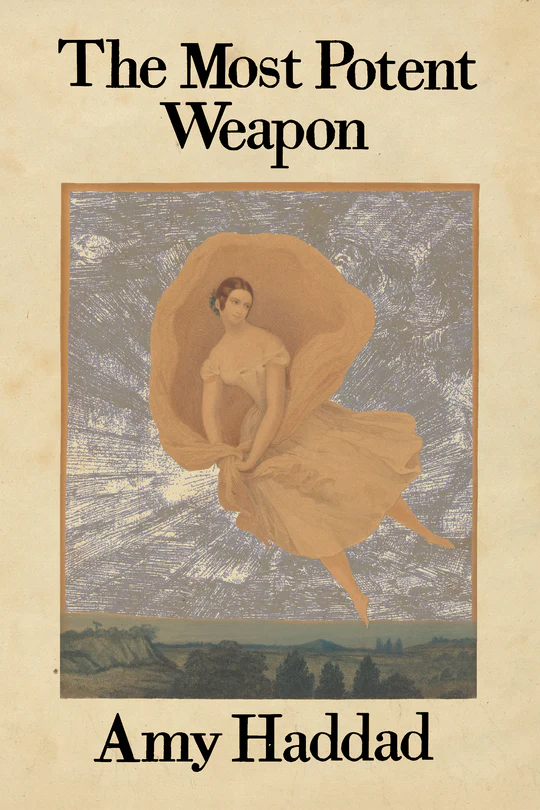
The poems in Amy Haddad’s The Most Potent Weapon read like “enlightenments from life on the road,” to borrow from Paul Theroux, for those who journey with an end-stage or chronic illness. With a rare insider’s view of the world of health care from the dual perspectives of nurse and patient, Haddad reveals courage, frailty, grace, and humor in poems grounded in clinical authenticity.
The chapbook examines everyday life that is filtered through a cancer diagnosis. The poems highlight metaphors commonly used to describe the divides between the ill and well including differences in language, war imagery, and expectations regarding feminine beauty in form and language that are at once subtle, relatable, clear, and often jarring. This chapbook is like a series of postcards along the way on a trip to a strange land in which Haddad bears witness to unexpected, and at times, unbearable experiences encountered there. Anyone on a similar trip will find a willing companion in the poems in this book.
Every Bald Guy Looks Like My Brother, Tess Conner
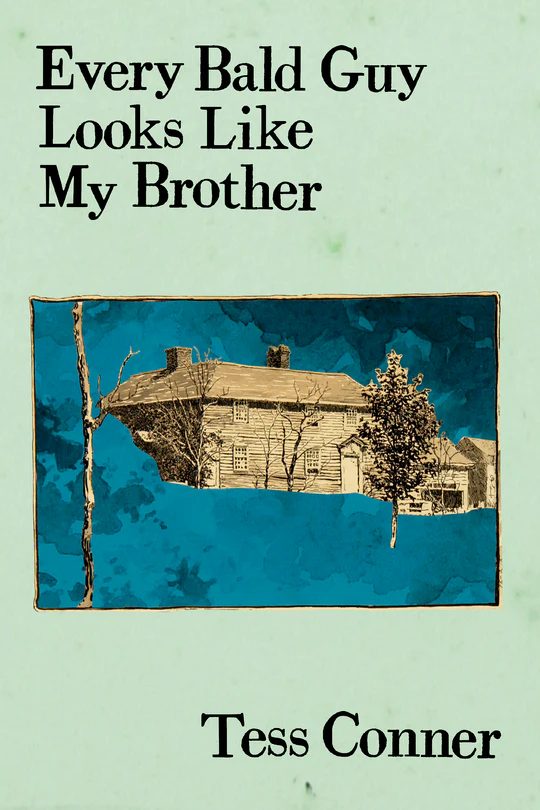
At its core, Every Bald Guy Looks Like My Brother is a collection of Love Poems, if not in the traditional sense. It is an exploration of love, in all its forms, and the innate creativity that can stem from it. It celebrates familial love, romantic love, and a love of the world that is larger than itself. In times of chaos and change, when worries can become larger than life, poetry can reduce the world down to a singular moment to be cherished.
Every Bald Guy Looks Like My Brother plays with forms and style to capture a specific nostalgia and universal longing. As a chapbook, it is a stretching exercise and a tribute to the beautiful things that inspire the artist in us all. It is a call to look outward, to loved ones and strangers, to achieve a calm within. It is written with love and dedicated to every reader.
Chronicle of Ignition & Destruction, Rhienna Renée Guedry
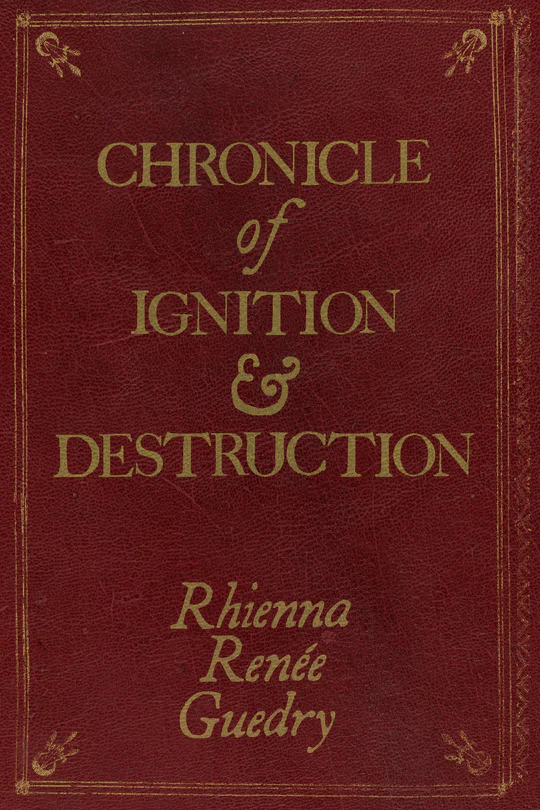
Chronicle of Ignition & Destruction is a meditation on ruin and resilience. This collection captures the precariousness of life in a place where fire consumes, water inundates, and history is etched; a place that is both physically and metaphorically sinking under the weight of its past and future ecological collapse.
Poet Rhienna Renée Guedry examines the interconnectedness of societal and natural histories in elegiac mourning and ecopoetic meditation. Here, the landscape is perpetually reshaped by man-made devastation and environmental degradation. Strong forces—climatic, elemental, political, and systemic—all act as destroyers. Certainly, there is much to grieve. In the aftermath of catastrophe, survivors bear witness and summon the strength to endure. But can we learn from our collective histories and horrors, in the aim to break the cycles of degradation? Chronicle of Ignition & Destruction leaves the reader pondering what comes next, and what remains.
Say Yes, Anpu, Hugo Placer-Sanchez
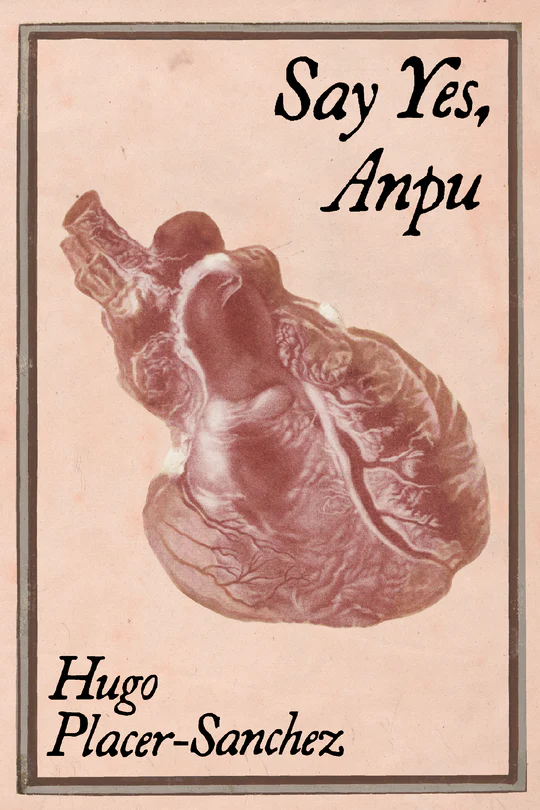
Say Yes, Anpu is a devotional cycle of poems rooted in a contemporary reimagining of Egyptian funerary theology, centering the god Anubis not as a remote mythological symbol, but as an embodied and affective presence within the grief-soaked fabric of modern life. Set untraditionally in liminal spaces like gas stations, supermarket aisles, and empty suburban roads, the chapbook navigates a ritualized intimacy between god and mourner, collapsing sacred distance and reclaiming death as a site of tenderness and revelation.
The poems are arranged with ceremonial intentionality, mirroring the movement of a funerary procession: invocation, descent, encounter, offering, aftermath. They draw from a syncretic theological lens: blending ancient Egyptian theologies of the heart and the afterlife with modern mysticism and psychopompic poetics. In doing so, the work discards the sterility of death-as-abstraction and instead reclaims grief, ritual, and divine embodiment as necessary acts of resistance and belonging. Say Yes, Anpu invites the reader not to explain or interpret divinity, but to meet it in all its trembling and unfinished qualities and in the quiet wreckage we carry.
The Crocus & I, Carissa Coane

The Crocus & I is a luminous and unflinching collection that tenderly charts both the fragmentation of self and the quiet, radical work of reassembly. Each poem opens a door into the liminal, pulsing with quiet urgency and radiant strangeness. Throughout the collection, the body and the page become shared landscapes of healing and recovery.
At once tender and incisive, the poems in The Crocus & I gesture toward what’s been lost and obscured, yet also offer a path through the wreckage: a way of speaking, however haltingly, toward clarity. These poems open up a space where grief, fear, and tenderness can coexist, rearranging our inner topographies with uncanny precision.
No Moon, No Beams: Quatrains and Free-Verse Poems About Life, Death, and Memories, Jamison Odone
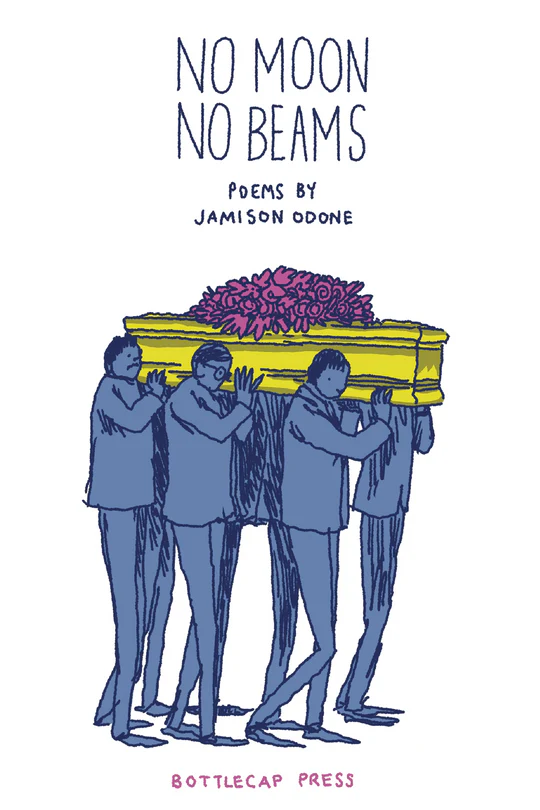
I go through months where nothing happens, nothing to write. Sometimes restarting it takes force. Then, as in this case, the restart after lull of ideas comes a burst of them. Not all good not all terrible. This lull was broken by speaking notes into my cell phone, mostly in the morning on my drive to the university where I work.
This collection of poems includes both rhymes and free verse. The bulk of the free verse comes from direct childhood memories whilst the quatrains are more like sketches of themes and visuals, I have always found to be interesting.
Cells of Absolute Property, Ariel Beller
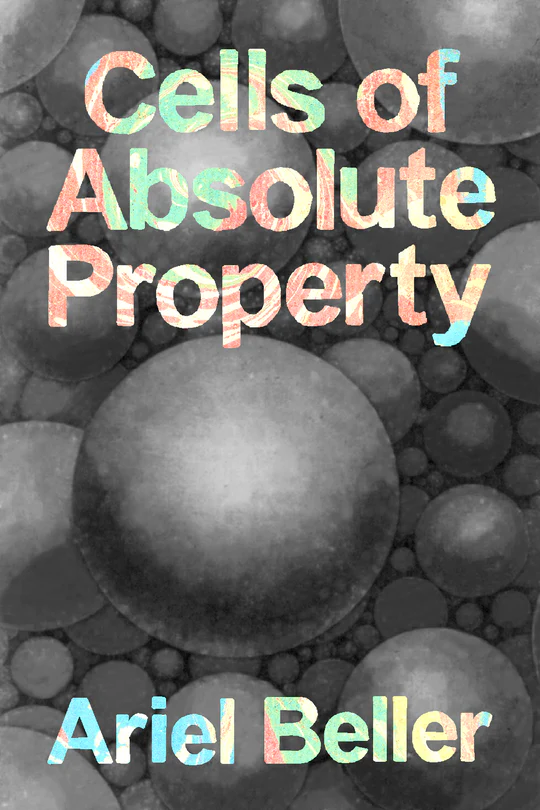
Typed out exactly as it appeared from a handwritten journal, this poetry sequence shows a complete disregard for traditional literary forms, punctuation, grammar, or even an individual style. Much of it is lifted language, and the numbers in this long sequence are in fact the page numbers written on the pages of the original journal. The book is the author’s response to the typed-out journal of another writer, which he found to be absolutely awful.
The conceit lay within its opening quote by Henry Miller, “One speaks of man’s potential nature as though it were a contradiction of the one he reveals.”
Something Like Love: Gay Poems on Love and Heartbreak, Konrad Ehresman
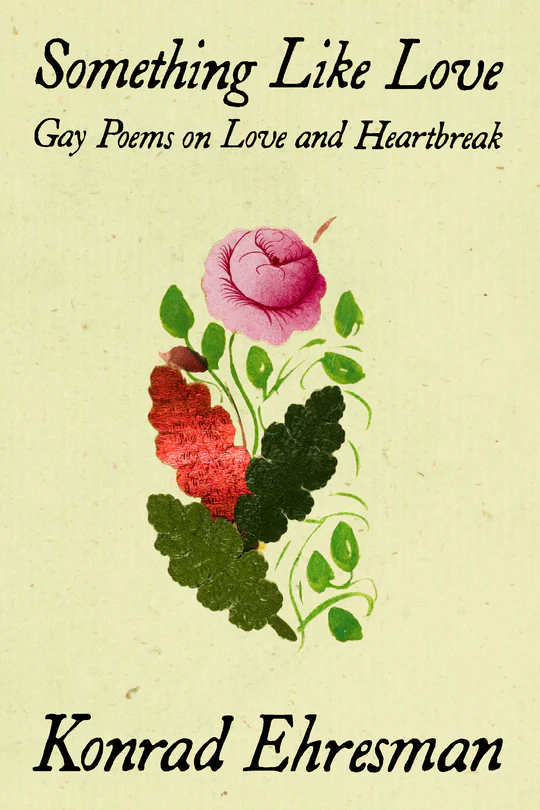
Something Like Love is an exploration of love’s complexities, told through the lens of a gay relationship that begins as an intense, physical connection. What starts with exhilarating uncertainty, quickly evolves into something deeper, as two men discover vulnerability, intimacy, and ultimately something like love. Through a series of rich poems, Something Like Love captures the moments of simple tenderness, passionate longing, and familiar joy that define their love.
The story takes a turn when betrayal enters the picture, and one partner is left broken and questioning the sincerity of everything they once shared. As the relationship shifts, the tone of the poems becomes more raw and desperate, mirroring the heartache of love lost. Something Like Love is an honest, heart wrenching portrayal of love’s fragility how it can grow and blossom only to be shattered by the very hands that once nurtured it.
The Teller’s Road, L. Ward Abel
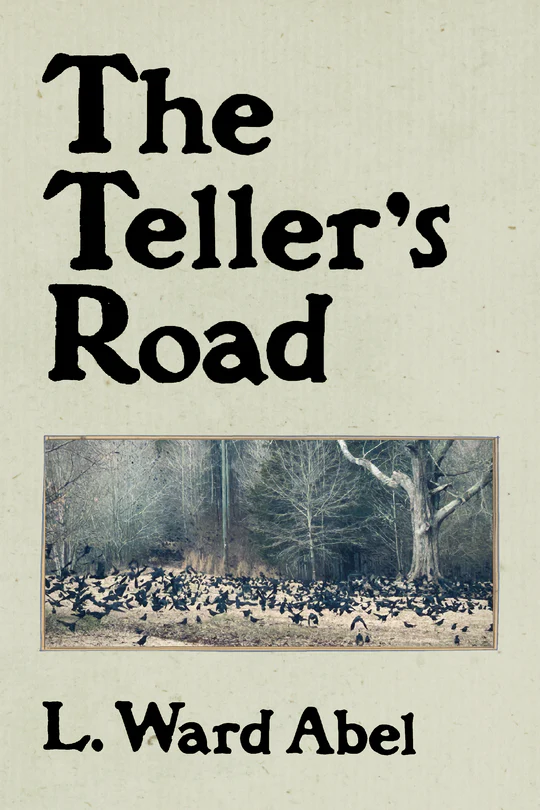
L. Ward Abel meditates on the connection between writing, mortality and landscape in his most recent poems. From small words to the universe itself, the poet searches for realizations, epiphanies, wonder, silence.
In these poems, the veteran wordsmith exhibits his characteristic obsession with the natural world and the interior world, spirituality and humanity, the peaceful moment through his use of “half- sentences full of novels / or half-mornings full of lifetimes.” Abel declares, “…there is / No time / No present tense.”
These pieces ultimately reach no conclusions except to admit there can be none. The work shows both the vulnerability and the triumph of the individual, and the desire for the simple life, whatever form it might take. After all, “we’re car lights / on an evening wall.”
Sense of Season, Cameron Colan
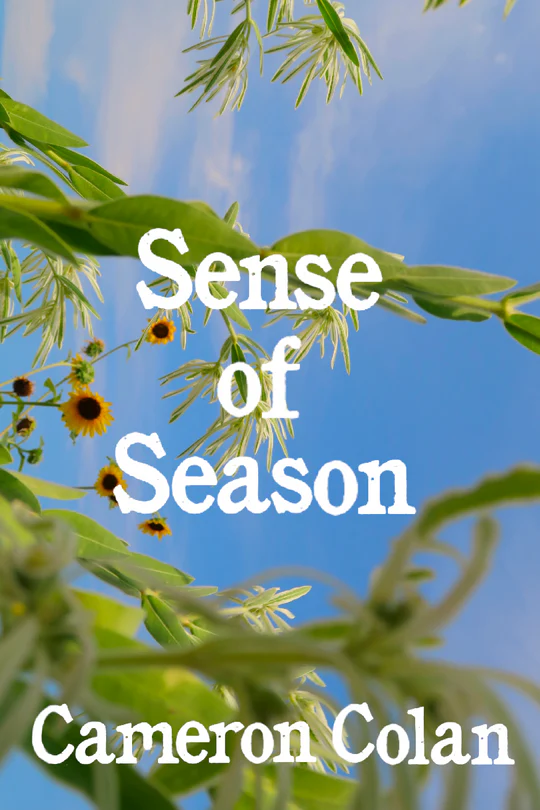
Sense of Season is a quiet unfolding—a meditative collection of poems that listens as much as it speaks. Rooted in wonder and memory, these pieces trace the invisible threads between the human spirit and the natural world. Cameron Colan’s poems move like wind through tall grass, pausing with the trees, the moon, the shifting sky. In their stillness, they ask how we grow and return, how we shed and emerge, and how the cycles within us echo those of the Earth.
Threaded with reverence and stillness, the collection invites readers into a slower rhythm, one that mirrors the quiet intelligence of the Earth. Each poem becomes a moment of presence, a reminder that deep connection begins with attention. What emerges through these pages is not just reflection—but a becoming—a sense of season.
Hidden, John A. deSouza
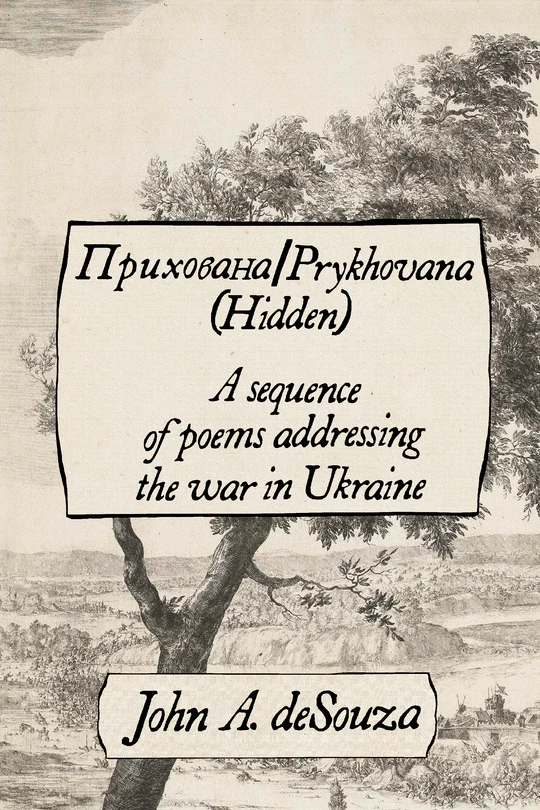
The conflict in Ukraine drags on, with over ten years of war and over three years of full-scale invasion by Vladimir Putin’s Russia. Written in the early months of 2025, the 12-poem sequence that comprises deSouza’s Hidden offers varied approaches to finding meaning in the midst of the tragic violence. With passages like: ‘the metal/flail of war,/the thrust and stab of love. Bullets torn flesh cannot hurt this’ deSouza sets out what remains of value against the backdrop of cruelty, lies and political posturing. The truth will out, and deSouza’s poems suggest there is more at stake and more ways to fight and resist then what media outlets and some politicians might have us believe.
Blueberries Stain Like Blood, E.B. Schnepp
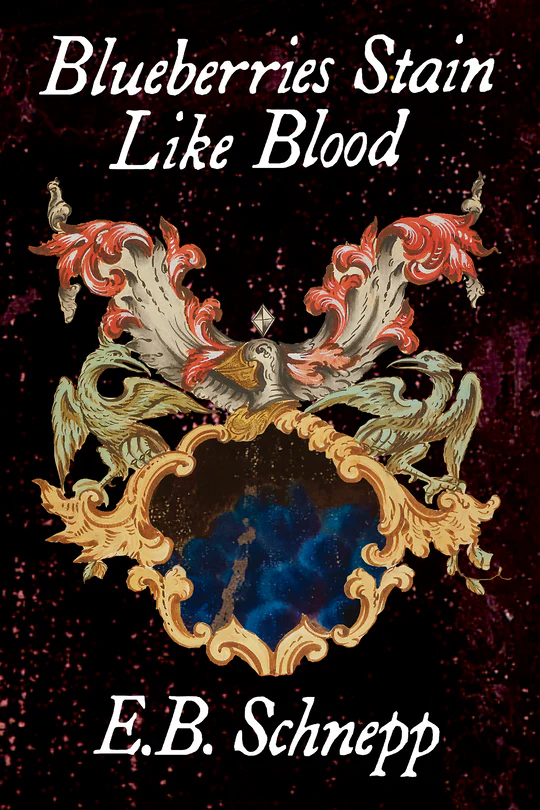
Blueberries Stain Like Blood is a series of artifacts, of folktales and old wives whispers, of bare-faced longings among the all too common violences that the same sensationalize, making a cautionary tale of the mundane. History intertwines with fable and the collection’s own echoing anxieties to present a tangle of body horror, omnipresent hunger, and survival.
Underpinning all of this, though, is a familiar rurality. A homescape that can be reached for, but that the speaker can never fully grasp or be embraced by. Borrowing nostalgia and collaging memories, real and false, the speaker reaches through decades toward what they imagine such a place could look like. Dirt roads, deep wood and swampland, bright berries, the kind of wild space whose appetites mirror the speaker’s own. A place to get lost; a place to be found.
Francesca Dons Beatrice’s Cloak, Jessie Epstein
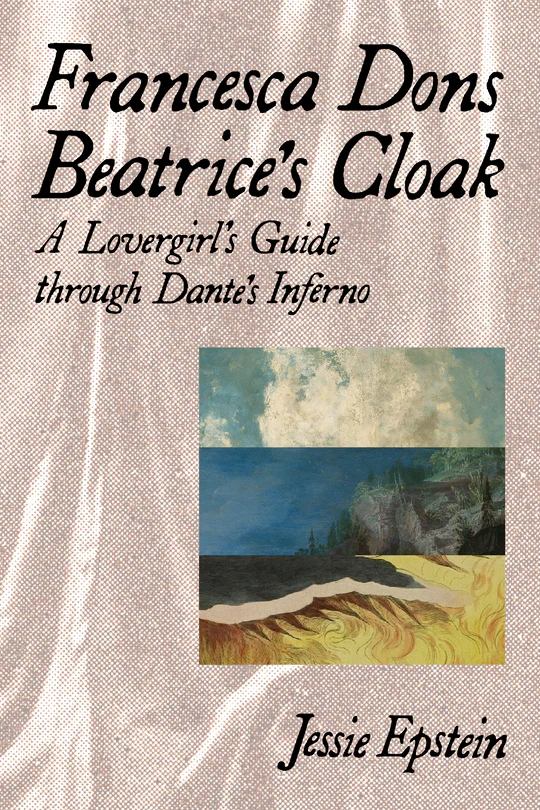
In ancient Greek, there is a special word to describe the feeling between soulmates: homophrosyne. It translates to “like-mindedness.” Homer employs it in The Odyssey to describe Penelope and Odysseus’ relationship – this idea that there is a mutual understanding between some lovers that equates almost to sharing a single mind, regardless of distance or obstacle. That they would know each other anywhere.
Dear Boobs, Cassie Burkhardt
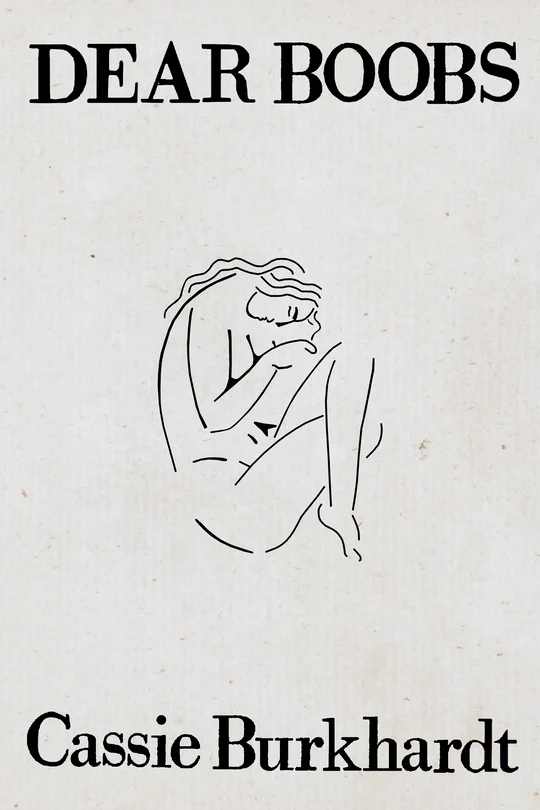
Dear Boobs is a vivid, unflinching exploration of modern womanhood told through the lens of motherhood, marriage, identity, and aging. In this poignant and often hilarious collection of prose poems and poetic monologues, Cassie Burkhardt captures the raw, everyday complexities of a woman raising children while trying not to lose sight of herself. Issues like postpartum body image, domestic invisibility, longing, intimacy, and suburban isolation are laid bare with striking vulnerability and wit.
Talavera Sunsets, James Duncan
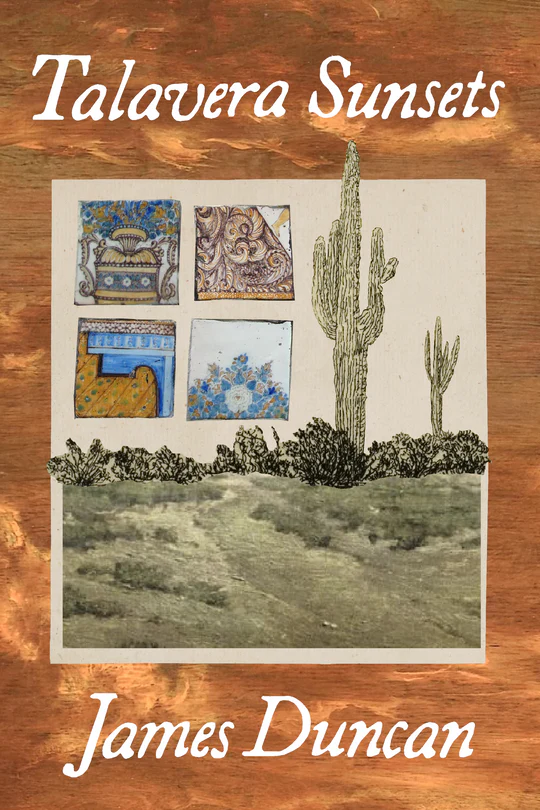
More than a road trip, it became a pilgrimage and last goodbye. The poems in Talavera Sunsets serve as mile markers along dusty highways in west Texas, archiving James Duncan’s final teenage road trip with his father and sister in the 1990s before impending adulthood swept them all in different directions.
From motels in Del Rio and Alpine to old cavalry forts and the McDonald Observatory north of Big Bend, these poems explore the people, places, and magical landscapes of a region as old as time, yet always in flux with humanity’s never-ending migrations. The three of them never returned, and part of them never left.
Beach Bones, Sheila Duane
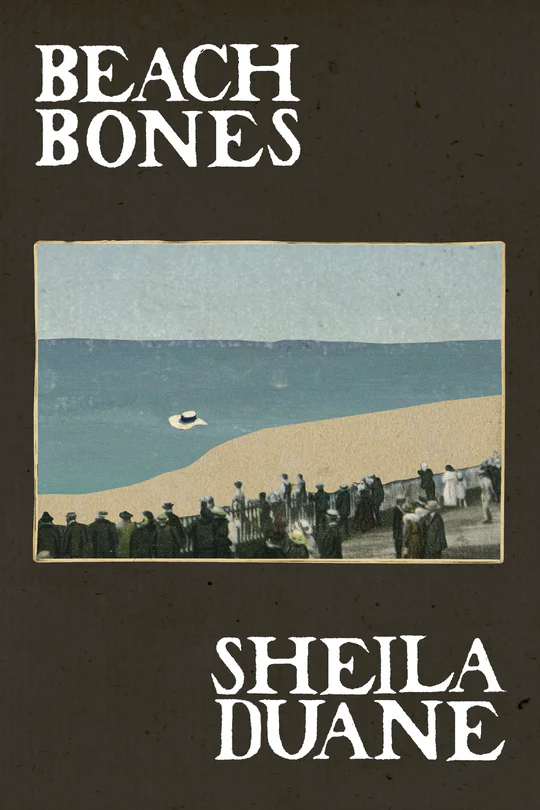
Beach Bones is dedicated to the victims of the Long Island serial killer whose bodies have been found along Gilgo Beach and other nearby waterways. The murders of these people were horrific, and the aftermath was horrific as well.
News reporting about the discovery of the victims often stresses the women’s occupation as sex workers. There is less discussion about murdered human beings and more commentary about the fact that ‘choosing’ sex work as an occupation is dangerous.
Don’t see a poetry chapbook published between 4/1 and 4/30 here? Contact us to let us know!

Contents
Book Excerpt: The Prize of Québec by Jennifer Nelson
“I tend to lean into the transconstitutory powers of ekphrasis. … Only in poetry can one go to the moon in a way that critiques the quest for the moon.” Read a poem from Jennifer Nelson’s new collection from Fence Books, On the Way to the Paintings of Forest Robberies.
Chapbook Poem: This Is How They Teach Us How to Want It . . . by Shanta Lee
“This poem explores the levels of our participation in handing ourselves over, often to the people, places, or things that deserve no such delight.” Read a #poem from Shanta Lee’s new book from Harbor Editions, This Is How They Teach Us How to Want It . . . The Slaughter.
Three Poems by Jonathan Fletcher
“Instead of having to choose between religion or the LGBTQ community (which I know many member of the latter feel they have to do), I think it is possible (and maybe even biblical) to integrate both into one’s life.” Read three original poems from Jonathan Fletcher, along with words from the author.
What Happened? On You are Leaving the American Sector by Rebecca Foust
“Rebecca Foust’s new chapbook of poems has a strange prescience. … Foust isn’t alone in making the obvious connection between Trump’s first term and Orwell’s dystopia.” Read the full chapbook review by new contributor Rick Mullin.
‘What if we started creating together? What if we looked at who we are from the side and saw a much more complete and honest perspective?” Read four poems by poet Sarah E N Kohrs, along with words from the poet.
Book Excerpt: Challenger by Colleen S. Harris
“If we look beyond the voyeuristic tendency to focus on the tragedy, what might we see? This poem was a chance for me to zoom in on the calm before the storm.” New poem from Colleen S. Harris’s new book from Main Street Rag, The Light Becomes Us, along with words from the poet..
Chapbook Poem: What I Did This Summer by Elinor Serumgard
“I love New Year’s and the promise of a new start, but I like to remind myself that you can start fresh at any point throughout the year.” New poem from Elinor Serumgard’s chapbook from Bottlecap Press, Analogous Annum, along with words from the poet.
Four Poems by Christa Fairbrother
“Since women aren’t allowed the power of our anger, we take it out on each other, and that’s what this poem is hinting at.” Read four poems by Christa Fairbrother, along with words from the poet.
Multilingualism and Metaphor: On Desire/Halves by Jaia Hamid Bashir
“Bashir’s elegant debut collection investigates identity as the result of choices between individual appetites and cultural frames. … [It] announces an exciting addition to the global chorus of contemporary literature.” Read D.W. Baker’s full review.
